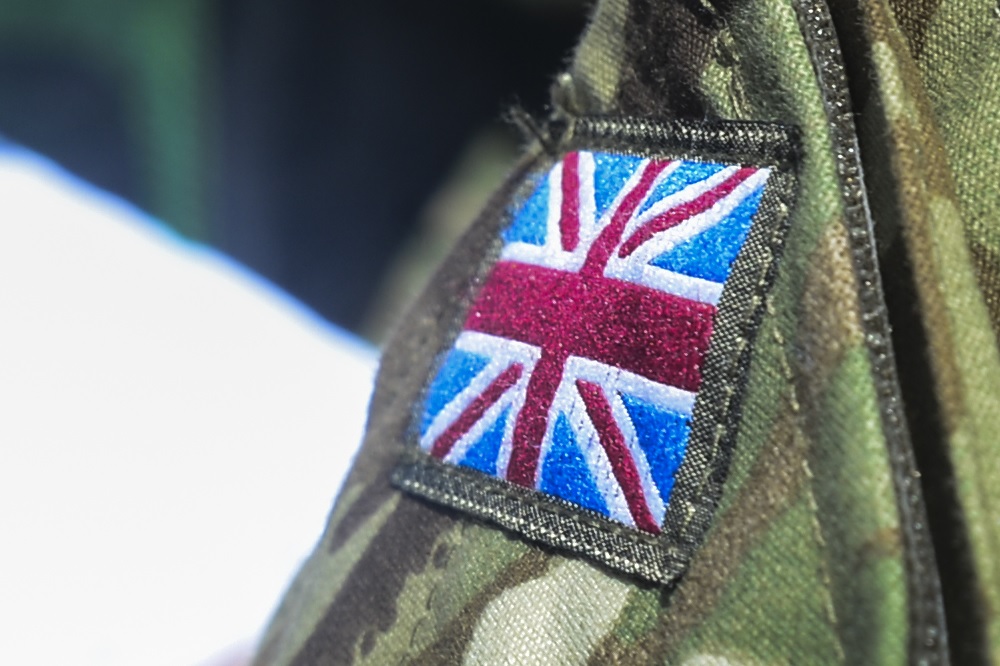Imposing martial law on Britain’s streets wasn’t on the side of the big red Brexit bus

Jonathan Edwards, Plaid Cymru MP
Symon Hill, Peace Pledge Union
The current chaos over Brexit must not be weaponised to present the armed forces as the only institutions which can save us in a crisis – a narrative straight from the playbook of crass reactionaries the world over.
Both Leavers and Remainers have emphasised a core belief in democracy and democratic norms. A society which values these democratic norms is not a militarised society.
3,500 armed forces personnel are being ringfenced. Not for international humanitarian purposes but to conduct police functions if and when Theresa May careers us off of a European cliff without a deal, like Susan Sarandon at the end of Thelma & Louise.
Perhaps our memories of the 2016 referendum have fogged in the intervening years but it’s unlikely that promises to impose martial law adorned the sides of any big red buses.
The British Government’s descent in management expectations from “taking back control” to “hopefully there won’t be food shortages” has been galling enough to witness. Threats to roll out troops on the high streets and communities in the event of a no deal Brexit, however, are the latest new low for a Government incapable of governing.
Understating the absurdity is difficult. The British Government is preparing to put troops on our streets to stymie the inevitable social unrest caused by food and medicine shortages which, in turn, are effects of its own incompetence. It’s the political equivalent of being warned by your GP about high cholesterol and instead of changing diet, simply pre-booking an ambulance.
The Civic Contingencies Act allows the government to suspend key civil liberties by declaring a State of Emergency. We would suggest, however, that quite a gulf exists between the legality of declaring a State of Emergency and the morality of following through on this.
In recent years, we have seen a sharp increase in military influence in everyday life, with school cadet forces more than doubling and the introduction of initiatives such as Armed Forces Day. Meanwhile, the army has continued to target the poorest and most vulnerable young people for recruitment.
Sending troops onto the streets is not a reasonable alternative to listening to the people of this country – the vast majority of whom, unsurprisingly, do not wish to see food and medicine shortages or queues at ports or fights in the street.
Reckless
If the British State were a developing nation on the southern hemisphere we’d rightly be concerned that its institutions had been captured by inept, out-of-touch elites.
The prospect of the military policing our high streets to stop looting and rioting cannot be treated as some casual civil service response to just another policy problem. People are right to have serious concerns about the economic and democratic implications of imposing martial law in 21st century Britain.
The last time states of emergency were declared in the UK was in the early 1970s to deal with the effects of strikes in essential services. In 2019 neither the imposition of martial law nor a State of Emergency ought seriously to be under consideration.
The army are not appropriately equipped to deal with roles traditionally reserved for the police or civic agencies. Much in the way that a civic engineer is not equipped to teach yoga.
Perhaps this grim impasse in political history is the moment to consider how austere slashes to police budgets have stifled the ability of the state to react to prospective social unrest without resorting to militarised force. Replacing police officers with soldiers is, however, neither sensible nor safe. The military simply does not have the appropriate training, experience or, perhaps more fundamentally, function in our society.
Contemplating putting soldiers on the street is surely proof enough that the Prime Minister and her reckless enablers cannot continue with their dangerous deal or no deal gamble.
The British Government must clarify the mission statement it has sent accompanying this call to arms by publishing it in full.
Martial law is probably the most serious domestic decision any government could make and is not one to be taken lightly. Likewise, the economic effect of imposing a State of Emergency would be catastrophic – not to mention the democratic and social implications.
The armed forces are not playthings to be manoeuvred like toy soldiers by anyone, least of all the current Secretary of State for Defence.
Support Nation.Cymru’s work? We’re looking for just 600 people to donate £2 a month to sponsor investigative journalism in Wales. Donate now!
Support our Nation today
For the price of a cup of coffee a month you can help us create an independent, not-for-profit, national news service for the people of Wales, by the people of Wales.





